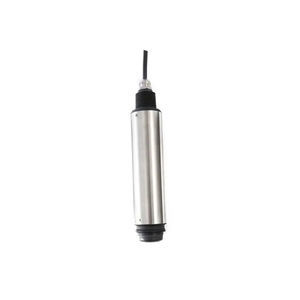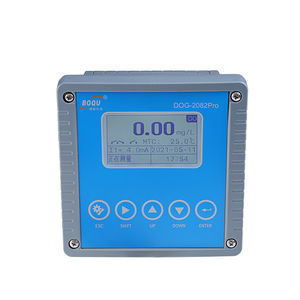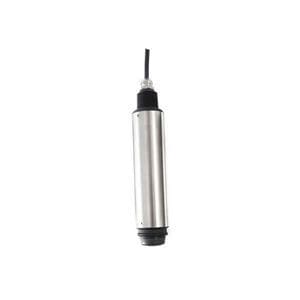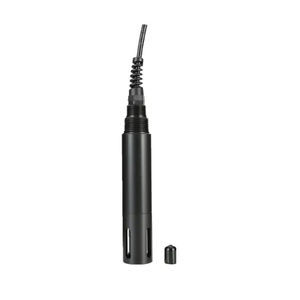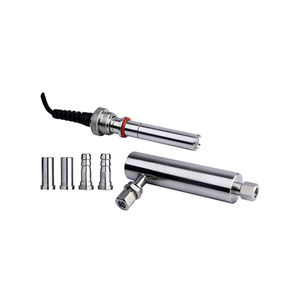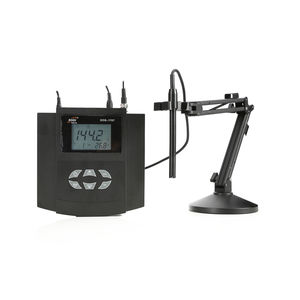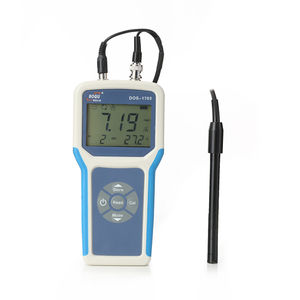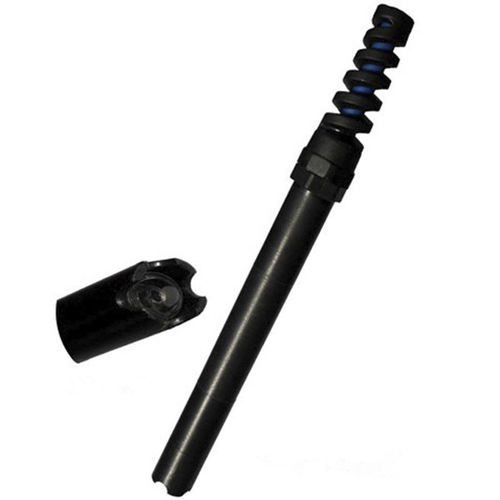
- Metrology - Laboratory
- Analytical Instrumentation
- Optical oxygen sensor
- Shanghai Boqu Instrument Co.,Ltd.
- Company
- Products
- Catalogs
- News & Trends
- Exhibitions
Optical oxygen sensor DOS-118Fprocess
Add to favorites
Compare this product
Characteristics
- Technology
- optical
- Other characteristics
- process
Description
1.Measuring range: 0-20mg/L
2.Measured water temperature: 0-60℃
3.Electrode shell material: PVC
Dissolved oxygen is a measure of the amount of gaseous oxygen contained in water. Healthy waters that can support life must contain dissolved oxygen (DO).
Dissolved Oxygen enters water by:
direct absorption from the atmosphere.
rapid movement from winds, waves, currents or mechanical aeration.
aquatic plant life photosynthesis as a by-product of the process.
Measuring dissolved oxygen in water and treatment to maintain proper DO levels, are crucial functions in a variety of water treatment applications. While dissolved oxygen is necessary to support life and treatment processes, it can also be detrimental, causing oxidation that damages equipment and compromises product. Dissolved oxygen affects:
Quality: The DO concentration determines the quality of source water. Without enough DO, water turns foul and unhealthy affecting the quality of the environment, drinking water and other products.
Regulatory Compliance: To comply with regulations, waste water often needs to have certain concentrations of DO before it can be discharged into a stream, lake, river or waterway. Healthy waters that can support life must contain dissolved oxygen.
Process Control: DO levels are critical to control biological treatment of waste water, as well as the biofiltration phase of drinking water production. In some industrial applications (e.g. power production) any DO is detrimental for steam generation and must be removed and its concentrations must be tightly controlled.
Catalogs
No catalogs are available for this product.
See all of Shanghai Boqu Instrument Co.,Ltd.‘s catalogsOther Shanghai Boqu Instrument Co.,Ltd. products
Dissolved Oxygen
Related Searches
- Gas analyser
- Concentration analyser
- Monitoring analyser
- Liquids analyser
- Automated analyzer
- Dust analyzer
- Process analyser
- Portable analyser
- Continuous analyser
- Integration analyser
- Water analyser
- Real-time analyser
- Digital analyser
- Calibration analyser
- In-line analyser
- Temperature analyser
- Sampling analyser
- Waterproof analyzer
- Analyser for the food industry
- RS485 analyser
*Prices are pre-tax. They exclude delivery charges and customs duties and do not include additional charges for installation or activation options. Prices are indicative only and may vary by country, with changes to the cost of raw materials and exchange rates.



